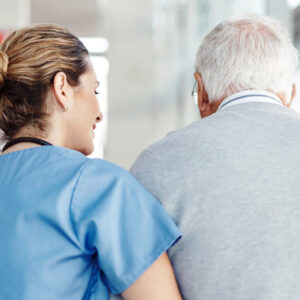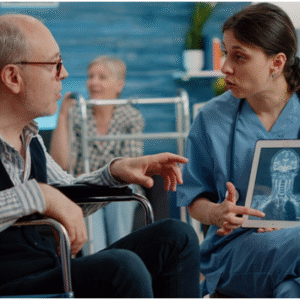Post-traumatic stress disorder is common in today’s society, but what would you do if it occurred to you or a loved one? Here are some healthy coping mechanisms you can use.

If there is something major that has a big impact in the life of a person, it is PTSD – Post-Traumatic Stress Disorder. It has made frustrated individuals turn to drug and substance abuse, and has even led to suicide and mental health issues, all because the affected individuals might not know healthy coping mechanisms, which are very important.
What makes it even more vital is that the symptoms of PTSD are very challenging for someone to cope with, and you may have seen it even in a loved one who has gone through a traumatic event of any kind – it is never easy. It has the potential of even affecting the mood, relationships, and ability of the person to be effective in their school or working spheres of life.
Do you live with someone who has the condition?
Let us be honest – living with a loved one who has the condition is not the easiest task out there. It is often challenging to understand them since they are more volatile, prone to outbursts of anger, and generally less affectionate with you or anyone else. Many times, it is easy to feel as though you are living with a stranger, or you are constantly walking on eggshells to make them happy.
It is difficult to not take the symptoms personally – however, you should keep in mind that the affected person does not have control over their behavior all the time. They are always in ‘alert’ mode, and they are always feeling unsafe and vulnerable due to their past painful event. That always leads to them becoming fearful, angry, irritable, depressed, and other symptoms associated with the illness – which they cannot let go of easily. That said, however, there is some good news – you can explore healthy ways of coping, as we will discuss in this article.

Getting back your focus through physical activities
Many people that have been diagnosed with the condition constantly say that getting a relaxing physical activity or participating in a sport on a regular basis has assisted them greatly to minimize the amount of stress they may go through, while also coping with the symptoms.
In fact, this may be because of a major factor you might not have thought of – your mental and emotional health is directly linked to your physical health. Individuals who live with PTSD are at a higher risk of developing physical health problems, so it is important for them to stay active.
Give your loved one social support
It is a common occurrence to see a person with PTSD to withdraw from their family and friends. Even though it is important that you give your loved one the space they need, it is also important to remember to give them as much support and comfort as they require. In fact, that comfort goes a long way to assist them to overcome the negative feelings of despair, helplessness, and grief that they are feeling.
Many experts support this tactic as well – in fact, studies show that the most essential factor in recovery from PTSD is face-to-face support from other people – your friends and family. However, it is important to know the best ways of showing your support, as you cannot force your loved one to get better.
First, avoid pressuring your loved one to get them to open up. PTSD patients find it very hard to talk about what they have been through, as it is relieving the experience, and it can make things worse for them. Instead, let them know you are willing to listen should they decide to talk, or just stay with them regardless. The second thing is allowing your loved one to lead the conversation, as that will allow them to feel safe and calm.
Patience is important in the process – do not rush them to open up, make sure you educate yourself on the condition and be ready to handle your loved one with care and respect.

Always listen to them
Even though you should let a PTSD patient open up at their own pace, it is also vital that you listen to them without any judgments or expectations when they decide to share. Ensure that they know you are willing to listen and you care about them, but it is not mandatory that you give them advice. Sometimes, it is better to be a listening ear than a counselor in this case.
Recognize the fact that they may need to talk about the event over and over again, as this is a part of the healing stages. Do not give in to the temptation of telling them to stop talking about it and move on; it is difficult for them to let go completely unless they air their feelings.
In addition, some of the things they might tell you will be very sensitive and hard to listen to, but you are not the patient here – they are the ones living with the memories from the event. Choose to respect their reactions and feelings. Otherwise, when they see you being judgmental or disapproving, they will be unwilling to tell you how they feel in the future.

Help them rebuild trust
Trauma will always change the ways a person views their lives and the world in general because the memories will make them feel that the world is a frightening place. It damages their ability to trust themselves and others, so it is important to help them regain their confidence.
Remind them regularly that you will always be there for them, as well as making different routines that give them a sense of security and stability. For instance, you can allow them to help you with some housework or making some meals.
In addition, encourage them to join a support group that has similar individuals, so that they do not feel alone and damaged in their trauma, and assist them to build consistency that will help them to gain some trust in these activities.
Final thoughts
PTSD can be due to a variety of events and painful circumstances, but that does not mean help is not available. If you have a loved one that is going through it, you can click here for more information on giving them some extra support and getting groups for them.




